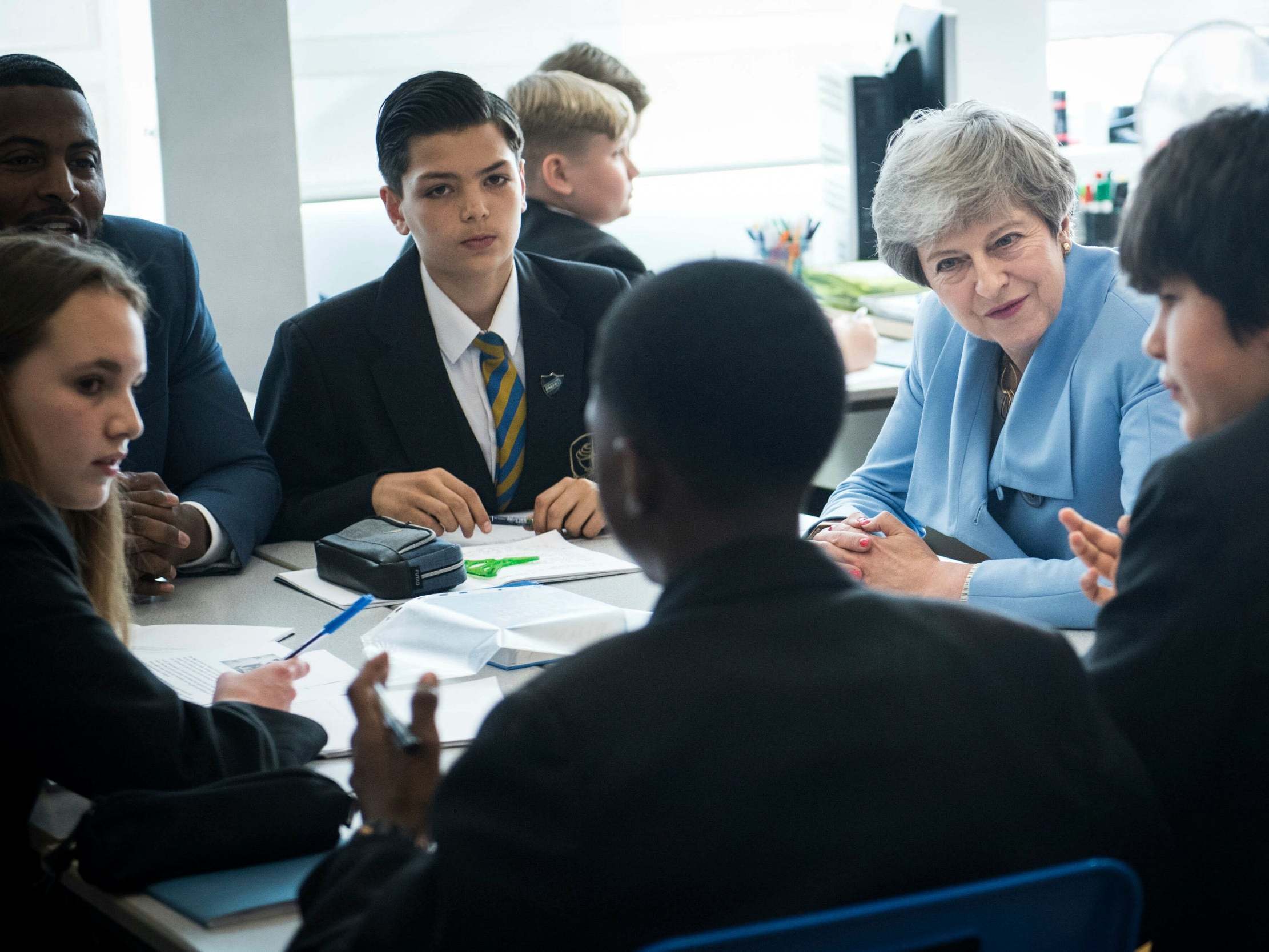Three in five secondary school pupils experience mental health problems, survey says
Young people face increasing pressures due to exams, cyberbullying and social media

Your support helps us to tell the story
From reproductive rights to climate change to Big Tech, The Independent is on the ground when the story is developing. Whether it's investigating the financials of Elon Musk's pro-Trump PAC or producing our latest documentary, 'The A Word', which shines a light on the American women fighting for reproductive rights, we know how important it is to parse out the facts from the messaging.
At such a critical moment in US history, we need reporters on the ground. Your donation allows us to keep sending journalists to speak to both sides of the story.
The Independent is trusted by Americans across the entire political spectrum. And unlike many other quality news outlets, we choose not to lock Americans out of our reporting and analysis with paywalls. We believe quality journalism should be available to everyone, paid for by those who can afford it.
Your support makes all the difference.Three out of five secondary school pupils have either experienced mental health problems themselves or are close to someone who has, according to a new survey.
Research by the charity Mind also revealed that one in seven of 11-to-19-year-olds say their mental health is either poor or very poor.
However more than half of the young people said they would not feel confident approaching teachers or staff if they needed help.
And nearly two in five said they would not know where to go to access support within school.
MInd, which offers advice and information to mental health problems, said that the survey of over 12,000 pupils showed the “sheer scale of the pressures faced by young people".
“Despite the high levels of poor mental health among young people, many are not accessing support and those that are aren’t always getting what they need,” said Louise Clarkson, the charity’s head of children and young people.
“It’s not schools at fault – we know they are under increasing pressure to provide wellbeing support for pupils at a time of rising demand and gaps in NHS mental health services.
“We know that many are doing the best job they can with limited resources and staff need the right expertise and support from other parts of the system. “
Ms Clarkson said that the issue of mental health was “rapidly becoming one of the major challenges our society faces”.
“We need to listen to what young people are telling us and be guided by them when designing services and support,” she added.
The survey found around one in five young people (21 per cent) had accessed support for their mental health within school. Of these, 43 per cent said they didn’t find the support helpful and 63 per cent said they were not involved in decisions made about that support.
Salma, 15, a pupil at a school in Lancashire, said: “There are many stressful parts of being a teenager today. So much can affect our wellbeing: exams, home life, cyberbullying, and the pressures of social media are just a few examples. I’ve found that not many people want to talk about mental health, and this needs to change.
“It’s so important that any young person with a mental health problem knows where they can get support – whether that’s from a parent, doctor, school, or a service like Mind. Seeking help can mean you can start to recover, and enjoy life again.”
A separate survey by Mind of more than 1,000 school staff revealed that almost three in four (71 per cent) felt confident that pupils who needed it were being adequately supported.
However, around one in two (52 per cent) feel that they do not have enough information to support pupils with poor mental health. Outside of school, staff were aware of other support but less than half (26 per cent) were confident that they would be able to help pupils to access it.
Chris Major, an assistant headteacher, said: “It’s clear to us that over the past few years there’s been an increasing demand for more mental health support for pupils as they cope with pressures of modern life.
“Young people face multiple pressures academically – like revising for exams – which we know can really impact their stress levels. In addition, we’re seeing more and more young people struggle with appearance pressures, and feel the need to showcase a ‘perfect’ life on social media.
“We’ve chosen to increase our provision in schools to meet this demand. Our school community now has greater confidence to talk about mental wellbeing and that helps to lets people know that they are not alone.”
The surveys were carried out as part of a pilot project in 17 secondary schools in England and Wales, funded by The BRIT Trust and WHSmith.
Mental health information for young people is available for free from Mind’s website (mind.org.uk).
Join our commenting forum
Join thought-provoking conversations, follow other Independent readers and see their replies
Comments